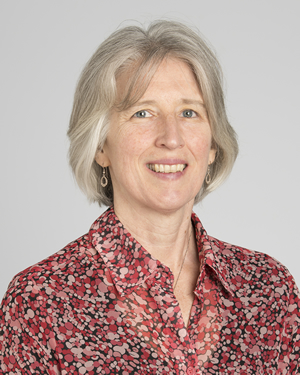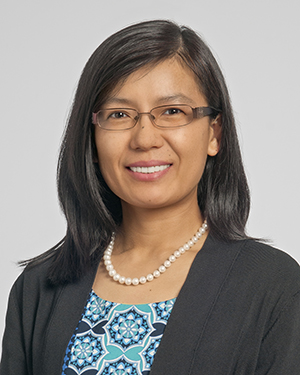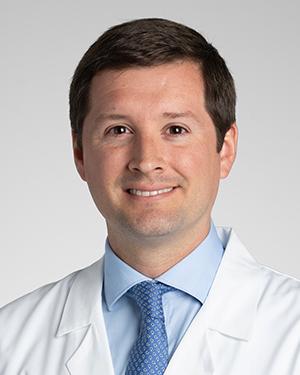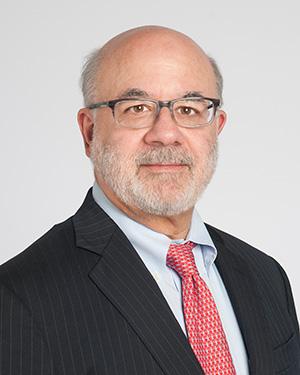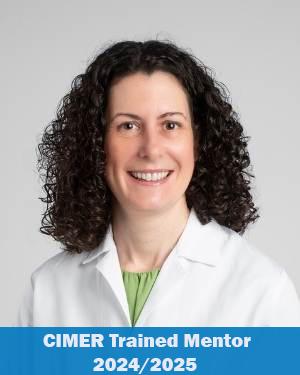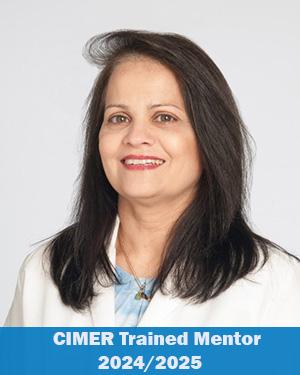Research News
11/13/2023
Cleveland Clinic awards $1.4 million for three research Centers of Excellence
Teams of physicians and researchers receive funding to pursue new approaches to solving problems in patient care.

Cleveland Clinic has announced three research Centers of Excellence, made up of teams of lab scientists and physicians dedicated to developing new solutions and approaches for patient care.
The Centers of Excellence program awards internal funding to encourage innovative cross-disciplinary projects. This year's awards total $1.4 million over two years, with second year funding contingent on progress. Past Centers of Excellence grants have led to publications, external funding and continued collaboration between the investigators.
The Centers of Excellence program has funded 18 centers since 2017, including this year's recipients. These types of internal investments can lay the groundwork for attracting external funding; Cleveland Clinic's investment of $12.3 million since 2017 has resulted in more than $71 million in extramural grant funding.
This year's recipients are:
Cleveland Clinic Center of Excellence in Osteoarthritis (Kathleen Derwin, PhD; Xiaojuan Li, PhD; Nicolas Piuzzi, MD)
Osteoarthritis (OA) is the most common form of adult arthritis, affecting 1 in 7 people. Currently, no disease modifying treatments exist. Patients with mild or moderate OA lack an effective solution, and total joint arthroplasty is the only intervention available to patients who progress to end-stage disease.
The Center of Excellence (COE) in Osteoarthritis will address the pressing need for OA therapeutic target discovery and identify multimodal (clinical, biological, imaging) OA biomarkers. The center brings together a highly multidisciplinary team within and beyond the Musculoskeletal Research Center (MSRC) and establishes an integrated and sustainable model of team science. Pre-clinical OA therapeutic target discovery in OA could lead to urgently needed disease-modifying treatments. Moreover, the ability to risk-stratify "progressors" in early-stage disease or "poor-performers" after total joint arthroplasty would improve personalized care, enhance outcomes and reduce costs.
Center of Excellence in Ewing sarcoma (Seth Corey, MD, MPH)
A new team of investigators from Taussig Cancer Center and Lerner Research Institute are completing preclinical work to treat Ewing sarcoma, an aggressive form of pediatric cancer. Ewing sarcoma is the second most common type of sarcoma in children. Preclinical work associated a genetic transcription factor – EWSR1/FLI1 – with Ewing sarcoma tumor development. This Center of Excellence pulls expertise from across Cleveland Clinic to investigate the potential of blocking EWSR1/FLI1 with small-molecule drugs.
Investigators from Pediatrics, Cancer Biology, Inflammation and Immunity and Cleveland Clinic's Center for Therapeutics Development will collaborate to map out cancer pathways associated with the transcription factor and develop compounds to block its function. To do so, the team will develop shared resources around preclinical Ewing sarcoma models and compound development. A major driver of the center is the work of Rebecca Anderson, PhD, in the Corey lab who created transgenic zebrafish models of Ewing sarcoma, demonstrating and quantifying the metastases of patient-derived Ewing sarcoma cells.
Center of Excellence for Sepsis-Driven Immunodeficiency (Rachel Scheraga, MD; Vidula Vachharajani, MD)
This center is entering the next phase of its research on sepsis, the most common cause of death in hospitalized patients. In sepsis, the immune system through increased white blood cells causes prolonged severe inflammation to fight the infection. However, in the second stage of sepsis, ineffective white blood cells cause various organs to fail. This center's research focuses on how signaling by the white blood cells that go throughout the body influences the inflammation associated with second stage of sepsis.
This phase of the research is testing how different types of white blood cells (macrophages and monocytes) function in sepsis throughout the body. Researchers aim to determine the role of two immune signaling pathways in sepsis: IFN-I and IL-1. Previous research showed macrophages and monocytes are involved in both protective and pathogenic roles during sepsis. Projects will focus on circulating monocytes in the bloodstream; lung macrophages; skin/soft tissue macrophages and small and large intestinal macrophages. The goal is to collect data to identify druggable targets specific to tissues and support future sepsis research.
Featured Experts
News Category
Related News
Want To Support Ground-Breaking Research at Cleveland Clinic?
Discover how you can help Cleveland Clinic save lives and continue to lead the transformation of healthcare.
Give to Cleveland Clinic